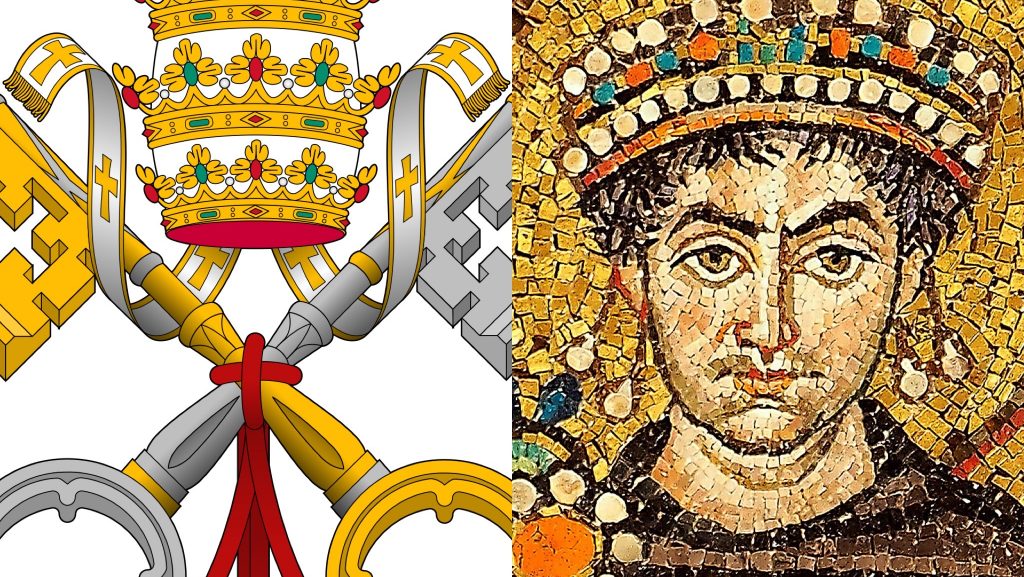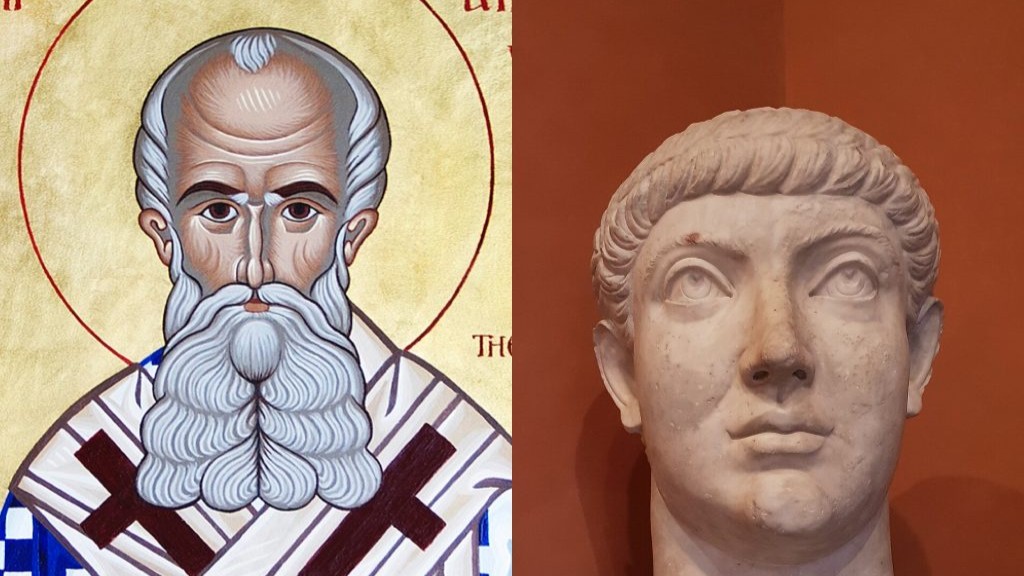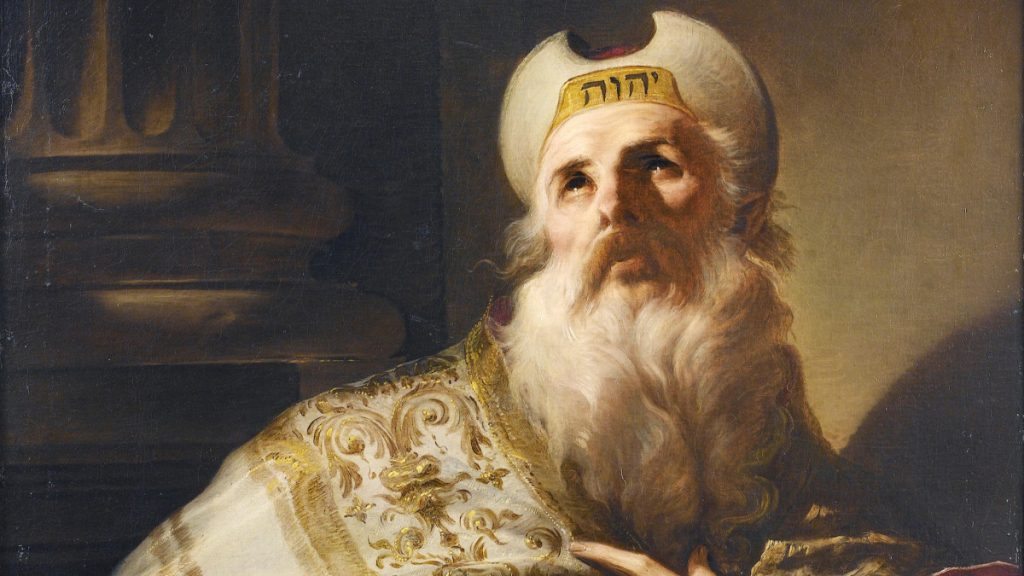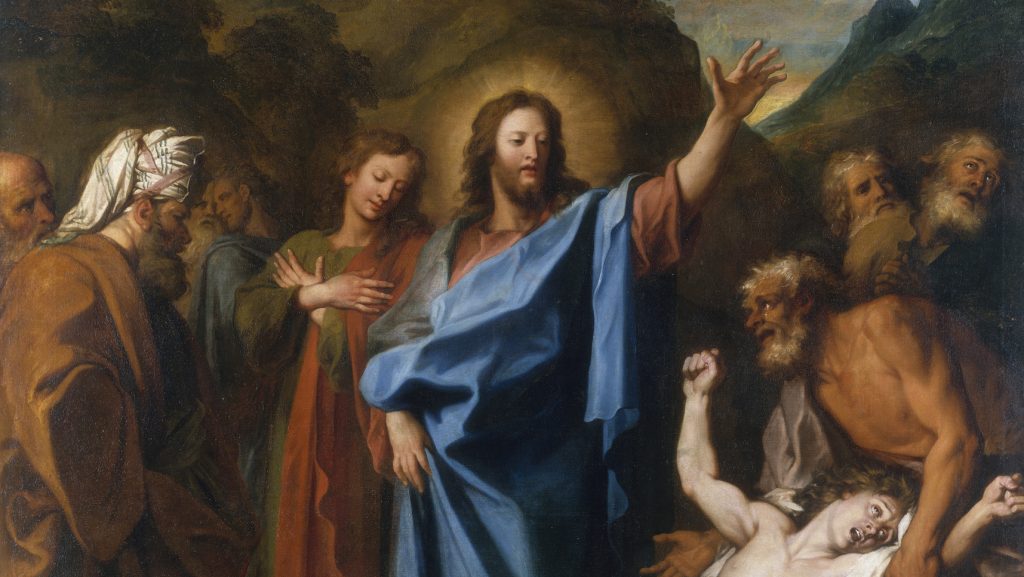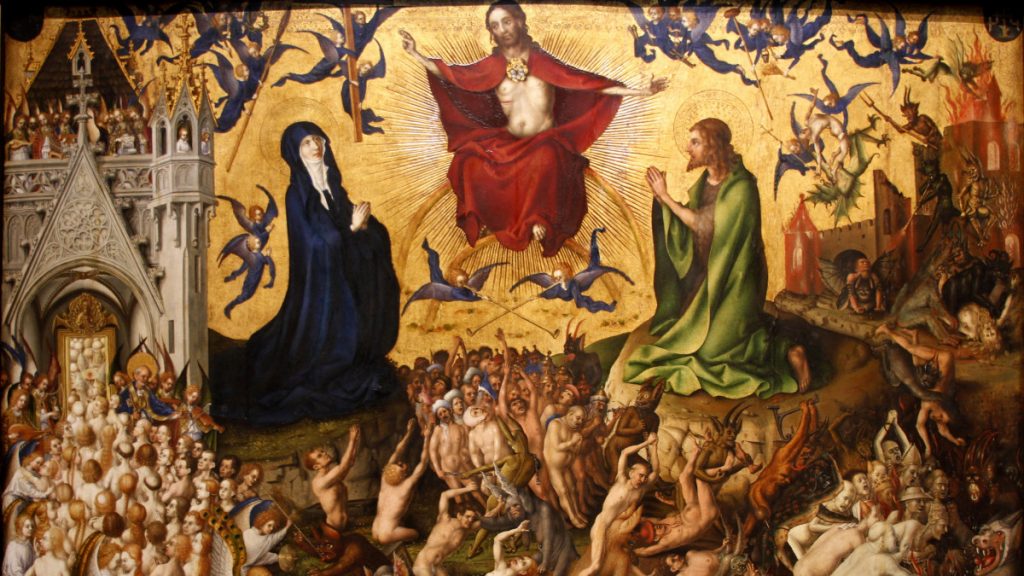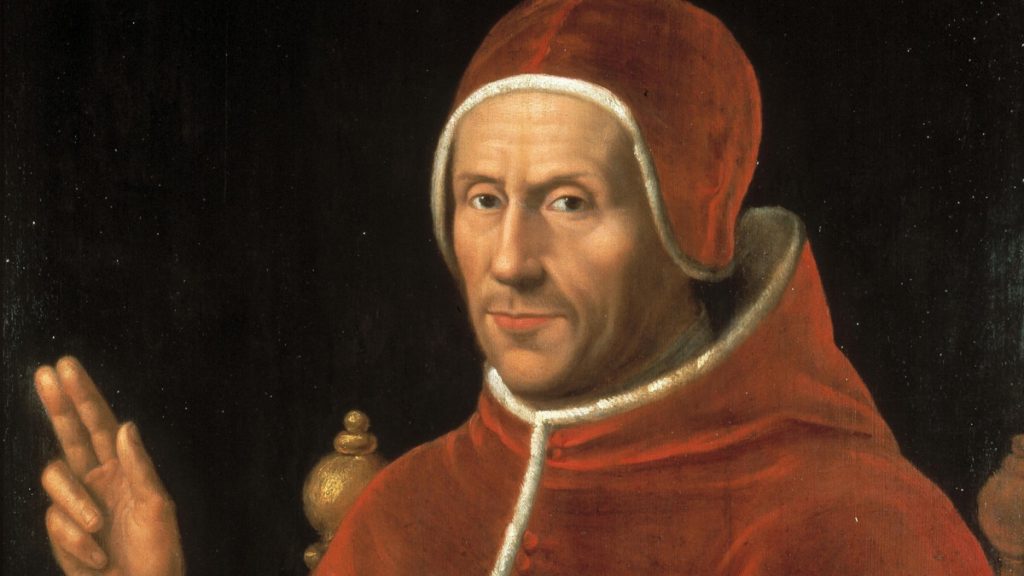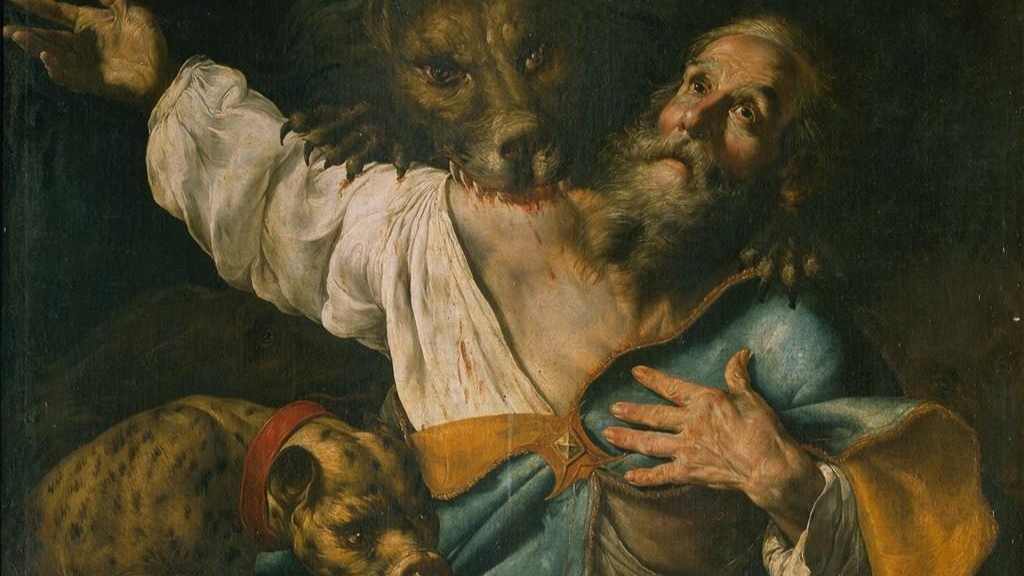(Updated July 23, 2025)
This Author Quote Archive collects pertinent quotes from the Ecclesiastical Writer, Theodoret of Cyrus.
Next to each quote are the Topic Quote Archives in which they are included.
This Quote Archive is being continuously updated as research continues. Quotes marked with “***” have not yet been organized into their respective Topic Quote Archives.
Books
Theodoret of Cyrus, Ecclesiastical History (c. 449-459)
(Book 2, Ch. 14) ***
This victorious champion of the truth [Pope Liberius] was sent into Thrace, according to the imperial order. Two years after this event Constantius went to Rome. The ladies of rank urged their husbands to petition the emperor for the restoration of the shepherd to his flock: they added, that if this were not granted, they would desert them, and go themselves after their great pastor. Their husbands replied, that they were afraid of incurring the resentment of the emperor. “If we were to ask him,” they continued, “being men, he would deem it an unpardonable offense; but if you were yourselves to present the petition, he would at any rate spare you, and would either accede to your request, or else dismiss you without injury.” These noble ladies adopted this suggestion, and presented themselves before the emperor in all their customary splendor of array, that so the sovereign, judging their rank from their dress, might count them worthy of being treated with courtesy and kindness. Thus entering the presence, they besought him to take pity on the condition of so large a city, deprived of its shepherd, and made an easy prey to the attacks of wolves. The emperor replied, that the flock possessed a shepherd capable of tending it, and that no other was needed in the city. For after the banishment of the great Liberius, one of his deacons, named Felix, had been appointed bishop. He preserved inviolate the doctrines set forth in the Nicene confession of faith, yet he held communion with those who had corrupted that faith. For this reason none of the citizens of Rome would enter the House of Prayer while he was in it. The ladies mentioned these facts to the emperor. Their persuasions were successful; and he commanded that the great Liberius should be recalled from exile, and that the two bishops should conjointly rule the Church. The edict of the emperor was read in the circus, and the multitude shouted that the imperial ordinance was just; that the spectators were divided into two factions, each deriving its name from its own colors, and that each faction would now have its own bishop. After having thus ridiculed the edict of the emperor, they all exclaimed with one voice, “One God, one Christ, one bishop.” I have deemed it right to set down their precise words. Sometime after this Christian people had uttered these pious and righteous acclamations, the holy Liberius returned, and Felix retired to another city.
Julian [the Apostate], who had made his soul a home of destroying demons, went his corybantic [wild, frenzied] way, ever raging against true religion. He accordingly now armed the Jews too against the believers in Christ. He began by inquiring of some whom he got together why, though their law imposed on them the duty of sacrifices, they offered none.
On their reply that their worship was limited to one particular spot, this enemy of God immediately gave directions for the re-erection of the destroyed temple, supposing in his vanity that he could falsify the prediction of the Lord, of which, in reality, he exhibited the truth [Matt. 24:2]. The Jews heard his words with delight and made known his orders to their countrymen throughout the world. They came with haste from all directions, contributing alike money and enthusiasm for the work; and the emperor made all the provisions he could, less from the pride of munificence [generosity] than from hostility to the truth. He dispatched also as governor a fit man to carry out his impious orders [Alypius of Antioch]. It is said that they made mattocks, shovels, and baskets of silver.
When they had begun to dig and to carry out the earth a vast multitude of them went on with the work all day, but by night the earth which had been carried away shifted back from the ravine of its own accord. They destroyed moreover the remains of the former construction, with the intention of building everything up afresh; but when they had got together thousands of bushels of chalk and lime, of a sudden a violent gale blew, and storms, tempests and whirlwinds scattered everything far and wide.
They still went on in their madness, nor were they brought to their senses by the divine long suffering. Then first came a great earthquake, fit to strike terror into the hearts of men quite ignorant of God’s dealings; and, when still they were not awed, fire running from the excavated foundations burnt up most of the diggers, and put the rest to flight.
Moreover when a large number of men were sleeping at night in an adjacent building it suddenly fell down, roof and all, and crushed the whole of them. On that night and also on the following night the sign of the cross of salvation was seen brightly shining in the sky, and the very garments of the Jews were filled with crosses, not bright but black. When God’s enemies saw these things, in terror at the heaven-sent plagues they fled, and made their way home, confessing the Godhead of Him who had been crucified by their fathers. Julian heard of these events, for they were repeated by everyone. But like Pharaoh he hardened his heart.
Biblical Commentaries
Theodoret of Cyrus, Commentary on 2 Thessalonians
- End Times | Commentary on 2:3-4
(Commentary on 2:3-4)1
“Because unless the defection comes first, and the man of sin is revealed, the son of perdition, who opposes and exalts himself above every so-called god or object of worship so that he takes his seat as God in the temple of God, proclaiming himself to be God” (vv. 3-4).
By “defection” he referred to the Antichrist in person, making a title out of the event. He called him “the man of sin” since he is a man by nature, receiving all the devil’s activity in himself, and “son of perdition” as being ruined himself and proving the source of ruin to others. In fact, human beings’ avenging spirit mimics the Incarnation of our God and Savior; as the latter by assuming human nature procured our salvation, so the former by selecting a human being capable of receiving all his activity will endeavor through him to deceive all human beings, calling himself Christ and God, and betraying the falsity of the so-called gods, which he himself practices in times past. By “temple of God” he referred to the churches, in which he will arrogate to himself pride of place, striving to declare himself God. The divine Daniel also prophesied this in the words, “He will not recognize him over gods of his ancestors, and will glorify Maozim as god in his own place” (Dan. 11:37), that is, he will name himself powerful god.
Letters
Theodoret of Cyrus, Letter 113: To St. Pope Leo the Great (449)
If Paul, the herald of the truth, the trumpet of the Holy Ghost, hastened to the great Peter in order that he might carry from him the desired solution of difficulties to those at Antioch who were in doubt about living in conformity with the law, much more do we, men insignificant and small, hasten to your apostolic see in order to receive from you a cure for the wounds of the churches. For every reason it is fitting for you to hold the first place, inasmuch as your see is adorned with many privileges. Other cities are indeed adorned by their size, their beauty, and their population; and some which in these respects are lacking are made bright by certain spiritual boons. But on your city the great Provider has bestowed an abundance of good gifts. She is the largest, the most splendid, the most illustrious of the world, and overflows with the multitude of her inhabitants. Besides all this, she has achieved her present sovereignty, and has given her name to her subjects. She is moreover specially adorned by her faith, in due testimony whereof the divine Apostle exclaims “your faith is spoken of throughout the whole world” (Rom. 1:8). And if even after receiving the seeds of the message of salvation her boughs were straightway heavy with these admirable fruits, what words can fitly praise the piety now practiced in her? In her keeping too are the tombs that give light to the souls of the faithful, those of our common fathers and teachers of the truth, Peter and Paul. This thrice blessed and divine pair arose in the region of sunrise, and spread their rays in all directions. Now from the region of sunset, where they willingly welcomed the setting of this life, they illuminate the world. They have rendered your see most glorious; this is the crown and completion of your good things; but in these days their God has adorned their throne by setting on it your holiness, emitting, as you do, the rays of orthodoxy. Of this I might give many proofs, but it is enough to mention the zeal which your holiness lately shewed against the ill-famed Manichees, proving thereby your piety’s earnest regard for divine things. Your recent writings, too, are enough to indicate your apostolic character. For we have met with what your holiness has written concerning the incarnation of our God and Savior, and we have marveled at the exactness of your expressions…
We had expected that through the instrumentality of the representatives sent by your holiness to Ephesus, the tempest would have been done away, but we have fallen under severer attacks of the storm…
But I await the sentence of your apostolic see. I beseech and implore your holiness to succor me in my appeal to your fair and righteous tribunal. Bid me hasten to you, and prove to you that my teaching follows the footprints of the apostles.
Theodoret of Cyrus, Letter 118: To the Archdeacon of Rome
A terrible storm has attacked our churches, but the adherents of the apostolic faith have in your holiness a safe and quiet haven. Not only do you champion the cause of the doctrines of the Gospel, but you utterly detest the wrong done to me. I was living far away at a distance of thirty-five days’ journey, when I was condemned at their good pleasure by those most righteous judges. Teaching which has obtained in the churches from the coming of God our Savior till this day they have abandoned. They have introduced a novel and bastard doctrine, diametrically contrary to the tradition of the apostles, and are openly at war with them that hold to the ancient instruction. Deign, then, most godly sir, to kindle the zeal of the very sacred and holy archbishop [the Pope], that the churches of the East too may enjoy your kindly care. Above all fight in behalf of the faith delivered from the beginning by the holy apostles; preserve the heritage of our fathers unimpaired, and scatter the mist that oppresses us. Give us instead of moonless night clear sunshine, and condemn the wickedness of the massacre unrighteously wrought against us. It is becoming to your holiness to add yet this act of zeal to your other good deeds.
